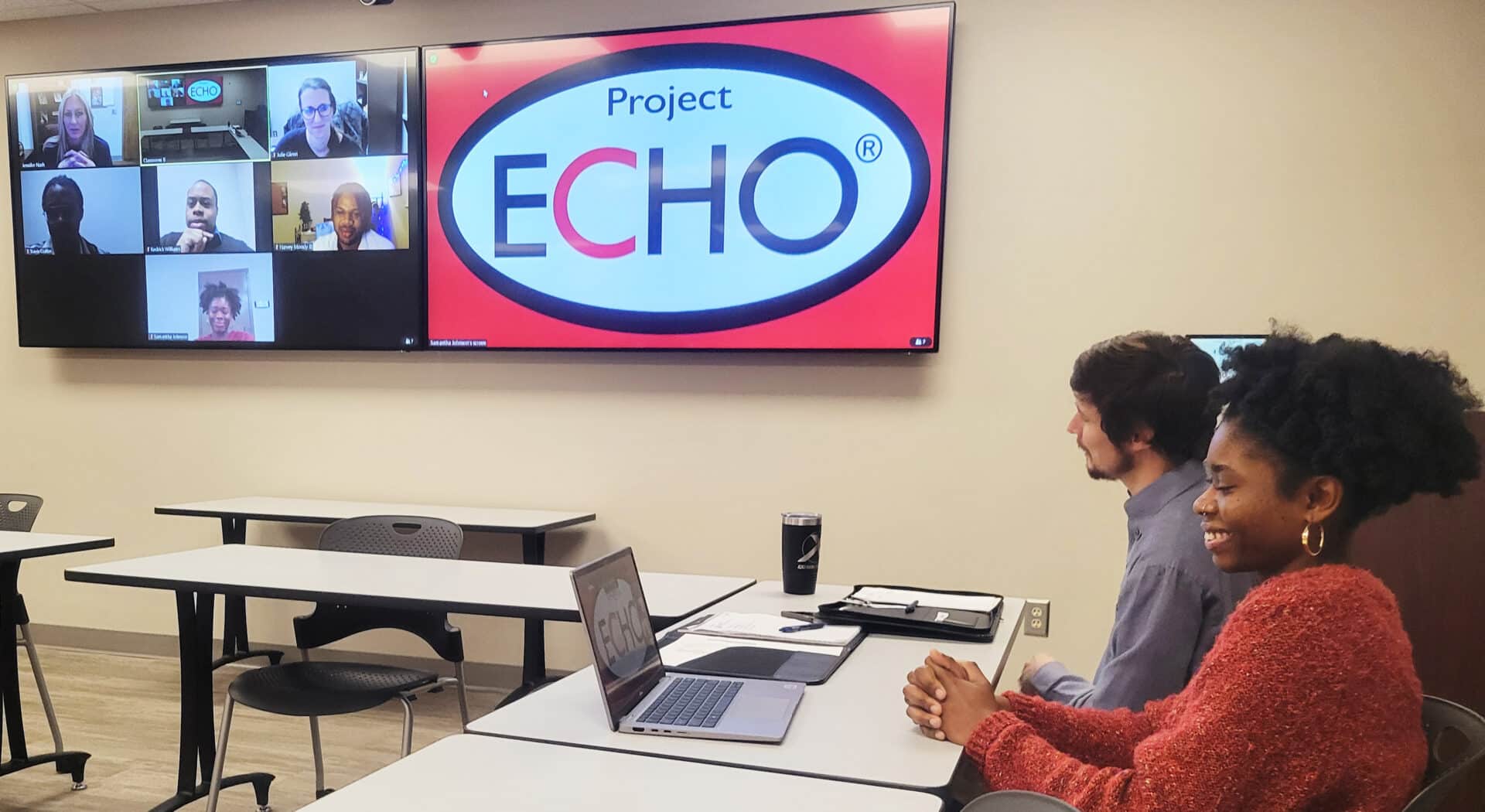
By Samantha Johnson, Community Resource and Assessment Specialist
The Georgia Rural Health Innovation Center (GRHIC) has been a Project ECHO Hub since 2020. Rural communities face unique challenges when it comes to health and health care, such as having a higher prevalence of chronic diseases compared to some urban areas and a shortage of health care resources and personnel. To support rural practitioners and other professionals, GRHIC hosts a Rural Health Care Ethics ECHO and supports partners around the state that are launching rural-focused ECHO programs. The goal of the Rural Health Care Ethics ECHO is to create space for difficult ethical topics to be discussed in an interprofessional and supportive way. Topics that are discussed explore ethical implications of end-of-life care, proxy decision making, scarcity of resources, pediatrics, and difficult discharge.
The 2023-2024 Rural Health Care Ethics ECHO is divided into three sessions that are focused on pediatrics, mental health of health care providers, and organ donation and transplantation. Within the rural health care setting, sessions are designed for hospital and clinical educators, chaplains, social workers, registered nurses, nurse practitioners, doctors, psychiatrists, and hospital executive members.
Project ECHO, Extension for Community Healthcare Outcomes, was launched in 2003 by Sanjeev Arora, MD, a liver disease specialist at the University of New Mexico Health Sciences Center. Dr. Arora was frustrated because he could only serve a small portion of hepatitis C patients in the state due to barriers, such as lack of transportation and limited availability to travel. This sparked the creation of Project ECHO, which built a community of practice where physicians could share knowledge and experiences with each other on specialty treatments and uncommon conditions. The use of a web-based platform allows connection and collaboration with peers across the state, country, and world. ECHO is not a lecture or webinar. It is an interactive, collaborative learning experience facilitated by subject-matter experts but led by participants.
The united principle of ECHO is “all teach, all learn,” which emphasizes the value of every member’s experience and knowledge. ECHO sessions are designed around case-based learning and gives providers the opportunity to gain skills and confidence from their peers. When this principle is applied, participants experience guided practice, on-going mentorship, and peer-to-peer collaboration. As participants learn from each other, their knowledge is tested through a local lens, creating a continuous cycle of learning and having a long-lasting community impact.
Today, ECHO expands around the globe and is used in a variety of fields and topics including education, maternal and child health, gender equity, emergency preparedness, COVID-19, HIV/AIDS, and rural health.
